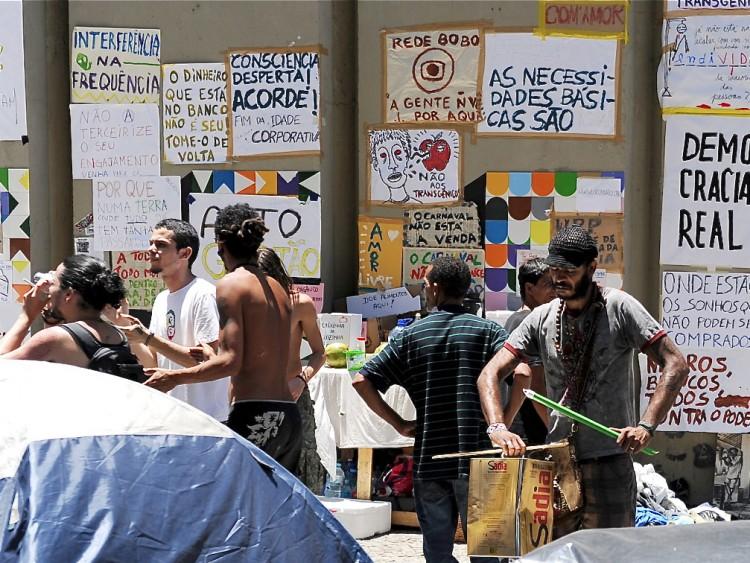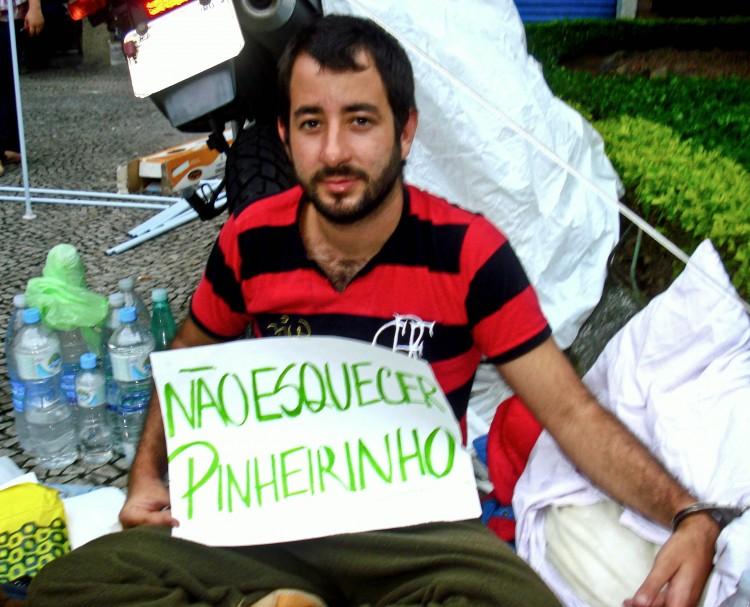RIO DE JANEIRO—Amid the sounds of samba, maracatu, and capoeira music, protesters inspired by the global Occupy movement have set up some 100 tents on Cinelandia Square in the heart of downtown Rio de Janeiro.
While the movement has gained ground in over 80 countries worldwide, it has seen a diversity of goals and themes in different locales.
In Rio de Janeiro, the protesters for the most part are targeting corruption, poverty, unemployment, and human rights violations. Meanwhile, some have joined the Occupy Rio protests to demonstrate against forced displacements in the city ahead of the 2014 FIFA World Cup and 2016 Summer Olympics.
“There are so many scandals [in the country] and all the indignation that has accumulated has now reached its limit. We cannot accept it to get any worse,” said Luiza Werneck, 32, who is currently unemployed.
Other demonstrators have converged on Cinelandia Square to protest against construction of the massive Belo Monte hydroelectric dam in the Amazon, and changes to the Brazilian Forest Code that threatens to increase deforestation.
Some 400 protesters can be found at the protest site on a daily basis. They began to set up camp two weeks ago, after joining a global demonstration on Oct. 15 called “United for Global Change” that was inspired by the Occupy Wall Street movement and the Indignados movement in Spain.
The protesters are from all walks of life, coming from a wide variety of backgrounds, beliefs, and social classes.




